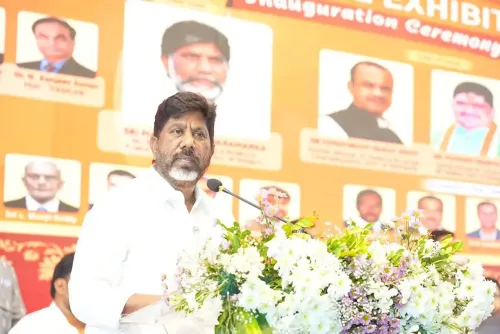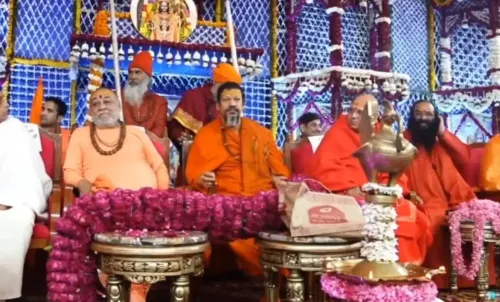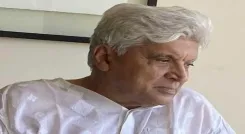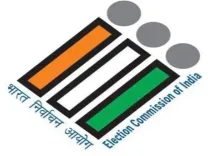Will Chhattisgarh Government Enforce a Stricter Anti-Conversion Bill Following Recent Trafficking Claims?
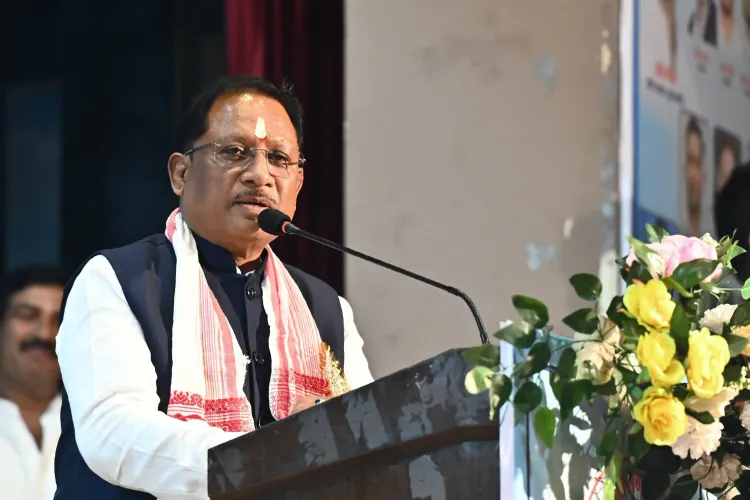
Synopsis
Key Takeaways
- Chief Minister Vishnu Deo Sai has pledged to amend the state's religious conversion law.
- The urgency for legislative changes arose from a recent trafficking incident at Durg railway station.
- Bajrang Dal activists allege a larger pattern of coercive conversions targeting tribal communities.
- The incident has reignited discussions on the treatment of religious minorities in Chhattisgarh.
- The investigation is ongoing, with the girls currently under protective care.
Raipur, July 27 (NationPress) In light of escalating communal tensions, Chief Minister Vishnu Deo Sai has committed to enhancing the state's laws regarding religious conversions, with plans for legislative measures in the upcoming Assembly session.
This announcement was made during a Hindu Jagran event at Raipur's “Shadani Darbar”, part of the Chhattisgarh Rajya Stariya Hindu Rashtra Adhiveshan (State Level Hindu Nation Convention) held on Sunday. Over 250 representatives from religious, legal, and civic sectors rallied for legal actions to prevent religious conversion, cow slaughter, and illegal immigration.
The proposed Bill is expected to be a comprehensive revision of the current legislation, as stated by the Chief Minister.
The urgency for this legislative action was highlighted just days prior at Durg railway station, where two Catholic nuns and a male associate were apprehended for allegedly trying to traffic three tribal girls to Agra under the guise of job offers.
Activists from Bajrang Dal intervened, asserting that the minors—hailing from Narayanpur and Orchha in Bastar—were misled with false promises of employment and education.
This situation escalated into a communal flashpoint, leading to the mobilization of crowds and intervention by the Government Railway Police (GRP), who detained all involved parties. The girls, now under protective care at the Bhilai Sakhi Center, claimed they were on their way to Agra for work but did not have clear details regarding their arrangement.
Following initial statements, the GRP filed a case of “human trafficking” against the three accused under Section 143 of the Bharatiya Nyay Sanhita and Section 4 of the Chhattisgarh Freedom of Religion Act.
GRP in-charge Rajkumar Borjha confirmed the seizure of various documents, including a diary containing names of priests and images of minors, escalating the depth of the investigation.
According to the police, Bajrang Dal activists claimed this incident reflects a larger trend of religious conversion and trafficking targeting vulnerable tribal communities. They alleged that the girls' families were unaware of their travel intentions and accused missionaries of concealing vital information.
Reports indicate that FIRs were filed by relatives of the girls at the Orchha police station.
Conversely, representatives from the Christian missionary community deny any wrongdoing, labeling the case as politically motivated, asserting that the girls had parental consent to travel for employment.
This community has signaled intentions to pursue legal actions to contest the allegations.
The Catholic Bishops' Conference of India (CBCI) has condemned the arrests, labeling them baseless and calling for intervention from the Prime Minister and Union Home Minister to protect minority rights.
Independent sources suggest that the nuns are part of the Green Garden Sisters of Agra and were working at Fatima Hospital. They were reportedly escorting the girls to commence work at the hospital, backed by written consent from at least one family member.
This controversy has reignited discussions surrounding the treatment of religious minorities in Chhattisgarh, a state governed by the Bharatiya Janata Party (BJP), where recent months have seen allegations of forced conversions and communal unrest.
The investigation is ongoing, with judicial custody granted until August 8, and the girls remain under the supervision of the Women Welfare Committee in Durg.


